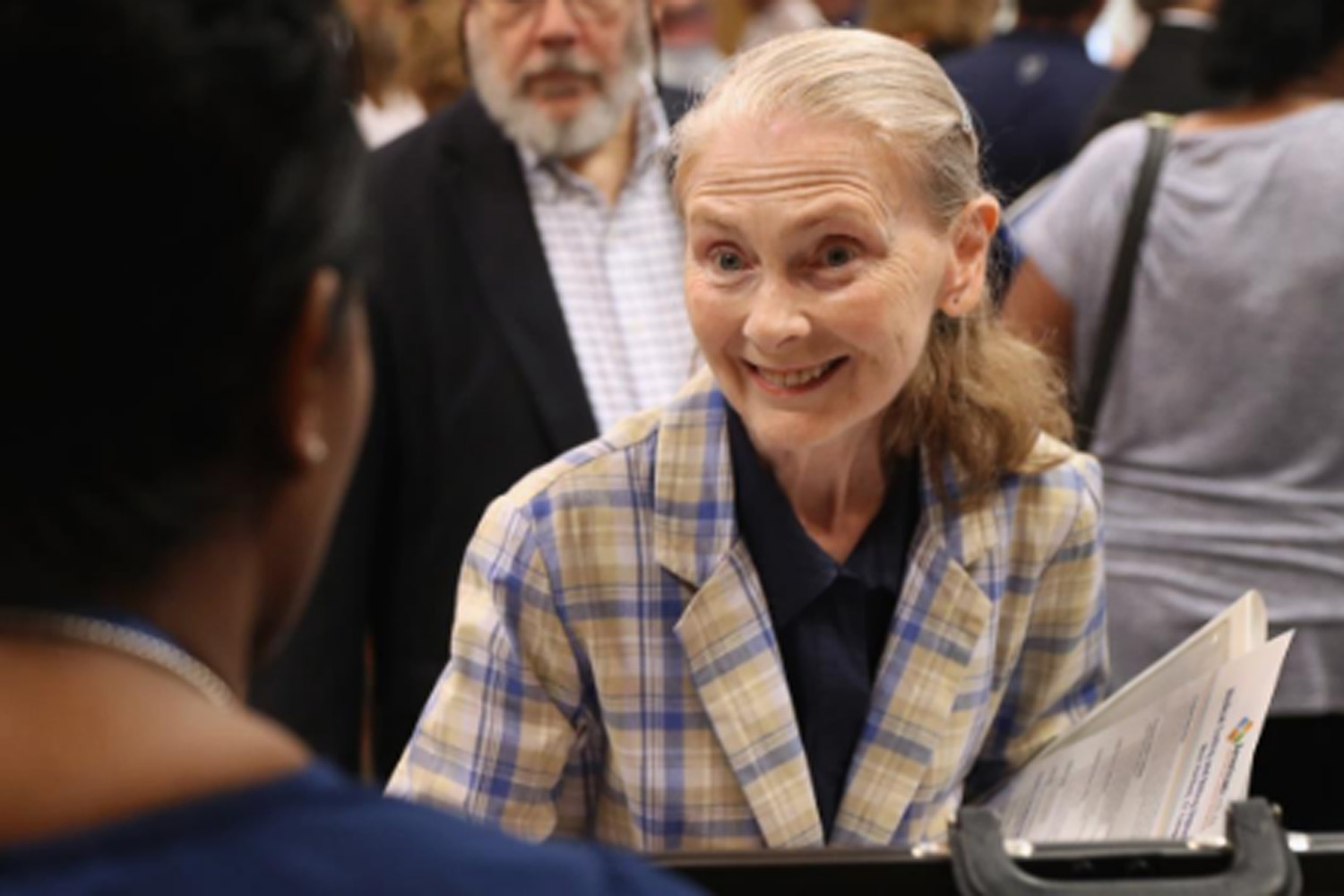Advertisement
How To Find A New Job After 50
ResumeThe number of older workers is on the rise. We’ll tackle the myths and realities of landing a job after 50.

America’s workforce is older than it was. In 2002, a quarter of workers were over 50. Now it’s a third. Lots more workers over 65 are working full time. A lot of younger job-hunters might wish they’d clear out. But many Americans are healthier longer and need to work. Can they find good jobs, new careers, at 50-plus? 60-plus? 70? Not just at the checkout line? The experts say the answer is now yes. This hour On Point, finding work after 50, 60 and more. — Tom Ashbrook
Guests
Anne Tergesen, reporter covering retirement for The Wall Street Journal. (@annetergesen)
Nicole Maestas, associate professor of health care policy at the Harvard Medical School and research associate at the National Bureau of Economic Research.
Kerry Hannon, jobs expert and columnist for the AARP. Author of "Getting The Job You Want After 50 For Dummies." (@KerryHannon)
From Tom’s Reading List
The Wall Street Journal: Five Myths About Landing a Good Job Later in Life — "The numbers make it clear that the nightmare scenario simply isn’t true. The 55-and-older crowd is now the only age group with a rising labor-force participation rate, even as age discrimination remains a problem for many older job seekers. Workers age 50 or older now comprise 33.4% of the U.S. labor force, up from 25% in 2002. And more than 60% of workers age 65 or older now hold full-time positions, up from 44% in 1995."
New York Times: How to Fight Age Discrimination -- "Age discrimination can happen to anybody, but it is difficult to prove. Because it is rare to have a 'smoking gun' statement from a manager, such as 'You are too old to do the job,' the best defense is a good offense, advises Laurie A. McCann, a staff lawyer for AARP Foundation Litigation."
AARP: Getting Your Name Out There -- "Don't be shy. Some people are naturals at selling themselves face to face. If you're not, consider taking a public-speaking class at a community college. Most courses cover techniques for such things as managing communication anxiety, speaking clearly, and tuning into your body language. Sign up for an acting workshop or improvisational comedy. These workshops can help you build your confidence and stage presence. Or join Toastmasters. Groups of about 20 people meet weekly for an hour or two. You learn how to focus your attention away from your own anxieties and concentrate on your message and audience. Finally, consider working with a personal career coach."
This program aired on November 30, 2016.